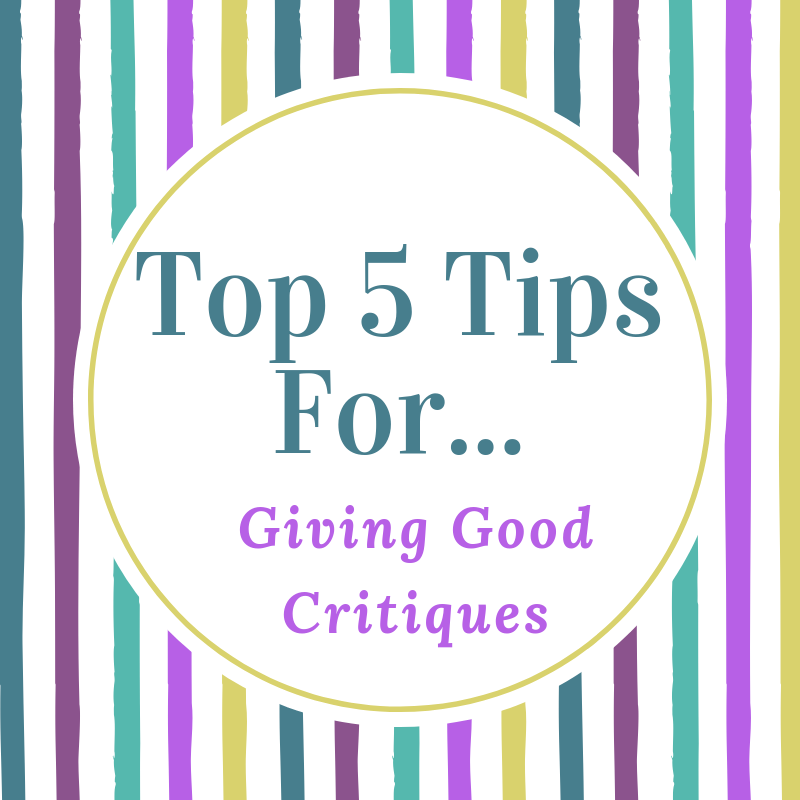One of the best ways of learning as a writer is, of course, actually writing, but also having your work critiqued. It can be a hard blow sometimes but it is a great way to learn, and learn fast. When you get critiques, whether through a writing group, or through something more informal, it’s normally good manners to return the favour.
But critiquing someone else’s work can be daunting. From the online writing site I use, called Scribophile (www.scribophile.com) one of the things I see most is aspiring writers feeling like they shouldn’t give advice to those more experienced because they don’t know enough. So with that in mind I thought I’d share my top 5 tips on giving critiques.
Everyone has something useful to say
It doesn’t matter if you’ve never written anything before or you’re a Sunday Times Best Selling author, everyone has something useful to say. Some people are great at the technicalities of writing – things like point of view, tenses, SPaG (Spelling, Punctuation and Grammar) – others might simply comment as a reader. Whatever approach you’re taking, each one is valid. I love to read comments on how my novel is making someone feel and see what they like and don’t like. Yes, some of it will be personal opinion but knowing if the scary bit is actually scary, or if the romance is making someone say, ‘Aaawwww!’ is half the goal!
If you’re new to writing and critiquing, don’t worry about the technicalities and focus on your reactions letting the writer know what is working for you and what isn’t. They will appreciate the comments!
Give the positives and negatives
Good critiquing is all about balance. Telling someone everything they’ve done wrong and nothing about what they’ve done right is going to make them feel like crap, whilst going all the other way doesn’t do them any favours. Make sure you tell the person what you think is good and what they can do better. Some people call this the ‘shit sandwich’ because you’ve got good-bad-good. And though this approach has been much maligned, I think it’s actually a decent rule to follow. In my opinion, ending on a positive is important and no one wants to be told everything they’ve done is rubbish!
Critique the work, not the person
Because writing is so personal this might not seem possible but it is. One of my top tips is to not use you, unless it’s for a good thing. So, for example, you could say:
‘I really loved the way you set the scene and introduced your main character but giving the inciting incident more impact could help to up the tension in the first scene.’
Instead of:
‘I really loved the way you set the scene and introduced your main character but I didn’t like the way you wrote the inciting incident. I thought it was boring.’
Do you see? In the first one, by referring to the work, in this case, the inciting incident, the critique doesn’t seem as personal and the recipient will hopefully be more open to considering your feedback. In the second one, the ‘I didn’t like what you did,’ would make someone less likely to take note.
Be polite!
I’ve seen some people giving critiques online who think because it’s not face to face they can be as ruse as they like. No matter if it’s face to face, online, over the phone, or any other medium you can think of, be polite! Even if you think it’s the worst piece of writing you’ve ever read, just remember that you started somewhere too and you have no idea where this person is on their writing journey, or what they’re battling against. If the person has been brave enough to ask for criticism, then respect that and respond with good manners.
Just remember that it could be that person’s first ever time having their work critiqued and a rude, overly harsh response could put someone off all together. Or they might be pouring their life and soul into their writing because the rest of their life is falling apart.
Good critiquing takes practice!
Just like improving your writing, improving your critiquing takes practice too. Keep going, even if it makes you feel uncomfortable, because you’ll learn so much and improve your own writing skills if you do.
I hope you found this helpful and that you give it a go. Have you got any tips to share too? Let me know in the comments below!
